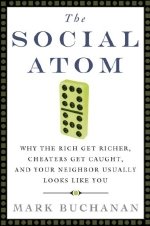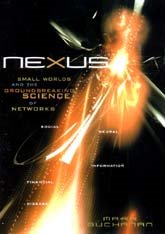Explain this. A recent poll taken by the Pew Research Center asked Americans to give one word best describing their impression of George Bush. The ten most common responses appear to reveal extreme partisan polarization, with half strongly positive and half strongly negative. While the two most popular responses were "incompetent" and "arrogant," the next two were "honest" and "good," followed by "idiot," "integrity," "leader," "strong," "stupid" and "ignorant." Nothing middle of the range there. You either like and respect Dubya, or you view him with utter contempt.
I've often wondered how this can be. Clearly all people aren't forming their views by a lengthy and thorough consideration of the facts, because then most would have similar views. A better explanation, perhaps, may lie in research that suggests that something in the way our brains work makes us highly susceptible to strongly partisan views, because they help to preserve our emotional link to some group with which we have become associated (the political left or right, for example). The force is so deep that many people do not even perceive evidence that contradicts their pre-formed opinions.
For example, in the run up to the 2004 U.S. presidential election between George Bush and John Kerry, researchers led by psychologist Drew Westen of Emory University had partisan Republicans and Democrats look at quotes, from Bush or Kerry, in which the candidates were clearly contradicting themselves. Westen and colleagues monitored the brain activity in these individuals as they tried to explain the contradictions. They found no increased activity in parts of the brain normally engaged during reasoning. Rather, it was primarily brain circuits involved in emotion and conflict resolution that lit up. As Westen concluded, "None of the circuits involved in conscious reasoning were particularly engaged... Essentially, it appears as if partisans twirl the cognitive kaleidoscope until they get the conclusions they want...”.
In other words, many of us seem to filter reality in an emotional way so as to preserve and support groups to which we feel linked. Any understanding of politics, I think, of the vast division between Red and Blue states, for example, has to take this into account. It's the strong influence of these emotional blinders that makes the political talk shows so clearly ridiculous as a means for finding anything like consensus or deeper understanding. In these shows, quite literally, all are talking while none are hearing.
Tuesday, February 20, 2007
Red Think/Blue Think
Subscribe to:
Post Comments (Atom)




No comments:
Post a Comment